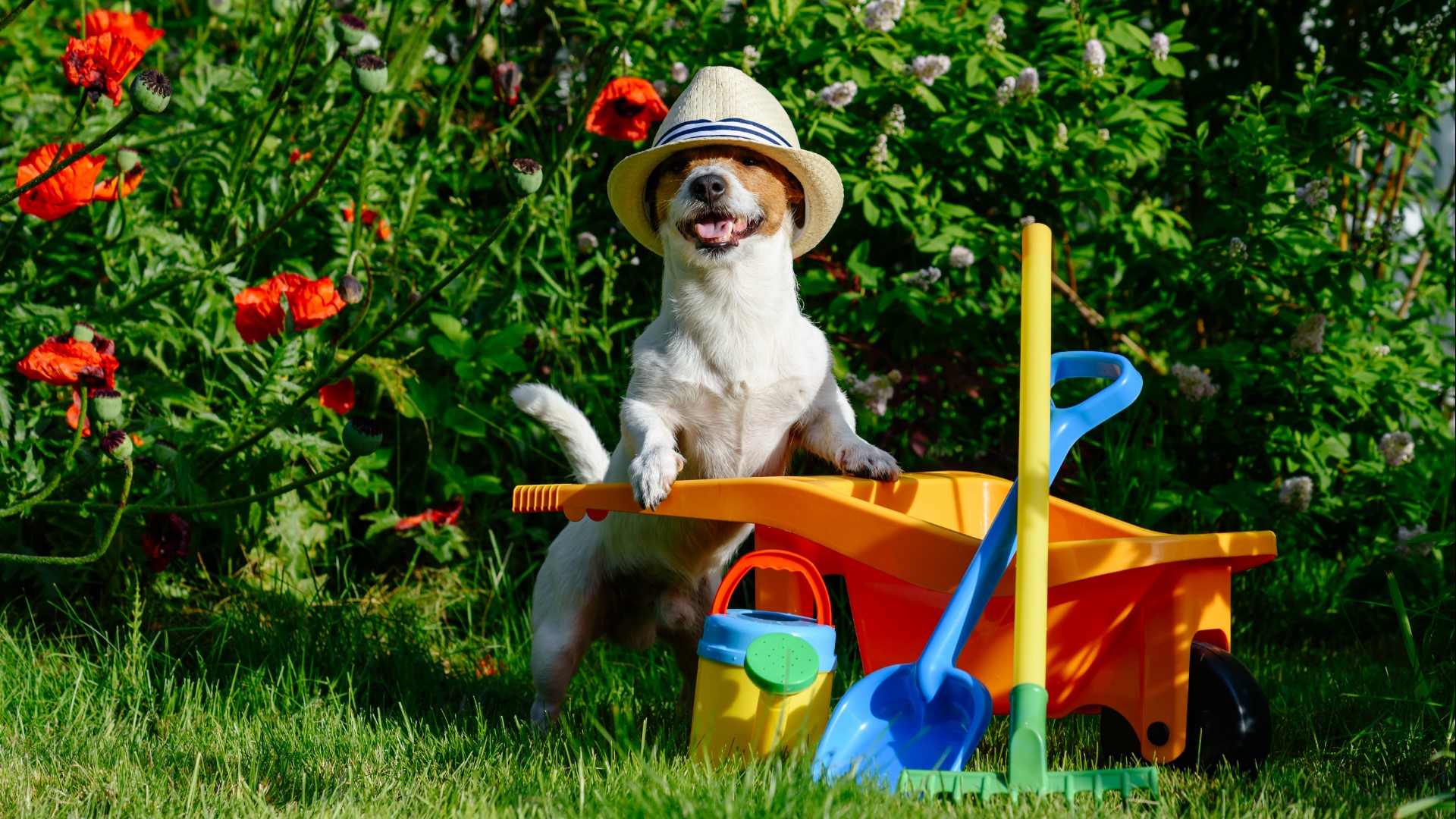GRAND RAPIDS, Mich. — Our pets love exploring the outdoors, and gardens can be especially tempting for curious cats and dogs. So before letting them play in the yard, make sure that your lawn care habits are pet-friendly.
Fertilizers and insecticides might keep weeds and bugs at bay, but even small amounts could make curious dogs and cats ill, says Dr. Krysta Haggins of BluePearl Veterinary Partners.
“I would say that nearly 30 percent of poison cases we see would be of dogs getting into things in the garden outside. It is a huge thing that happens in the evenings, on the weekends, when people are just out enjoying their gardens, not even thinking about it.”
There are easy steps pet owners can take to ensure that their gardens can continue to thrive, while their dogs and cats can safely play outside.
For starters, people should be wary of cocoa mulch, sometimes used in landscaping – the sweet smell of the cocoa bean shells can attract dogs and can cause vomiting, diarrhea, and muscle tremors. A less toxic alternative, like shredded pine, cedar or hemlock bark, is recommended.
The most dangerous forms of pesticides include snail bait with metaldehyde, fly bait with methomyl and most forms of rat poisons, among others, according to the ASPCA. Even if owners opt for composts, they should be careful that moldy or spoiled food doesn’t stand to attract pets.
Owners should consider organic fertilizers and lawn care options – many green products, which don’t use potentially toxic chemicals, can be purchased online, or in any major lawn care store. Some homemade, cheaper alternatives include neem oil, castor oil and canola oil, which people can use on gardens to repel bugs, according to EcoPortal.us.
Caffeinated coffee is also said to kill slugs, and weaker coffee may work to repel slugs from the base of plants.
If owners choose to use more typical fertilizers and insecticides that include chemicals, they should careful to read all the provided instructions and to see how long they should wait before their pets can walk freely on the grass. The same would go for if owners hire a landscaping or gardening company, and individuals should always ask what products are being used on their land.
This knowledge could later come in handy, especially if a dog or cat were to accidentally ingest something tainted with chemicals. In that case, the ASPCA Animal Poison Control Center hotline is always a call away, operating 24-7. The hotline is extremely useful, as veterinarians can’t keep track of every toxic product out there. If a pet owner were to call the hotline, the poison control specialist would field the call, assigning it a case number, and then coach the owner on what to do next. By the time the owner and pet reached the vet, if it were deemed necessary, the vet would already be in contact with the ASPCA, and be armed with all the proper information on how to best handle the situation.
“They will immediately give you advice, and then the center will talk to us vets, as well,” Dr. Haggins explained. “We work as a team, and it becomes a really great, important symbiotic relationship.” For more information on BluePearl Veterinary Specialists, visit bluepearlvet.com.
►Make it easy to keep up to date with more stories like this. Download the 13 ON YOUR SIDE app now.
Have a news tip? Email news@13onyourside.com, visit our Facebook page or Twitter.

